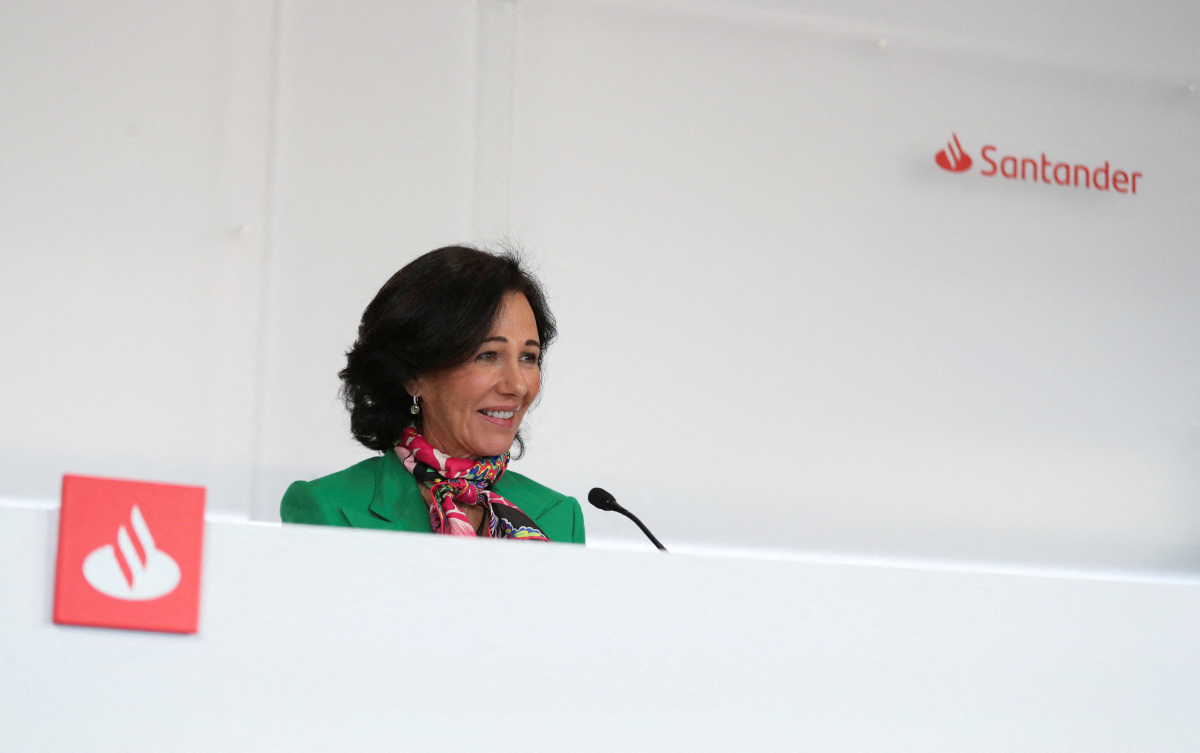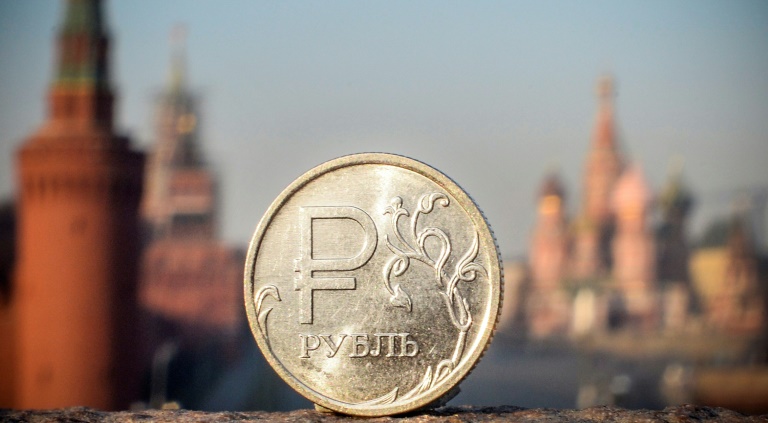Reuters
Santander Chairman Ana Botin is expected to signal bigger payouts to the bank’s shareholders in a strategy update next week bolstered by an improving outlook in Europe amid higher interest rates, bankers and analysts said.
Since she took over from her late father Emilio Botin more than eight years ago, Spain’s largest bank has improved its financial strength and put customer growth at its core, yet its shares have underperformed European competitors.
This has been partly due to currency depreciations in some of the emerging markets in which Santander has a significant presence, which has lowered the bank’s net asset value.
Shares in Santander, the euro zone’s second-biggest bank by market value, have fallen 47% since Sept. 10, 2014, while the European Stoxx 600 banks index is down around 18%.
The strategy update on Tuesday will be particularly closely watched as Santander shareholders will be asked to approve Botin’s re-election as a board member at the end of March.
Her reputation suffered some damage as a result of the saga of the aborted hiring of veteran banker Andrea Orcel as its chief executive in 2018-2019.
Santander declined to comment ahead of the strategy update.
EUROPEAN TAILWIND
The main growth driver for Santander’s 2023-2025 plan is expected to shift to Europe from Latin America, some analysts said, although higher revenues will also support loan growth in Brazil, its main market, and Mexico, where profitability targets are still expected to remain higher than in Europe.
“The bank will have a tailwind … because half of the money comes from Europe. And interest rate rises mean greater margins for the bank, above all in Spain and in Santander Consumer,” Enrique Quemada, chairman of investment bank ONEtoONE Corporate Finance Group, said.
Santander said on Feb. 2 when it reported its 2022 results that it expects an additional boost to its net interest income this year of up to 2.5 billion euros ($2.65 billion), especially in its home market, which still accounts for 16% of its profits.
Kepler Cheuvreux expects Santander to set a return on tangible equity (ROTE) target of above 14% by 2025 from a current target of 13.37%, while broker Renta 4 expects the target for the profitability measure to be set above 15% for 2025, the same as for 2023.
Broker Kepler forecasts that Santander will report a net profit of 12 billion euros by the end of 2025, which would imply a rise of 25% against 2022’s record profit.
In Britain, some analysts are concerned about the economic outlook and its potential impact on Santander’s business. But Kepler said the bank’s low risk profile, with 90% of its loans made through mortgages, should enable it to keep risks in check.
Meanwhile, the United States, Santander’s second-biggest market, is expected to experience some profit slowdown in coming years as provisions are expected to rise, although the bank has said these will be below pre-pandemic levels.
Santander is in the process of growing its U.S. deposit base to help fund its more profitable consumer lending business after recently exiting its mortgage activities.
New CEO Hector Grisi, who helped make Santander’s U.S. business its most profitable in 2021, is expected to accelerate the bank’s digital push and continue working on further cross-border collation among its global and payments business units.
A deterioration of the global economy could however lead to higher provisions and a high inflation scenario could push costs, but analysts expect that to be offset by higher revenues.
PAY-OUT FOCUS
Some analysts expect a higher shareholder payout to be main plank of Santander’s investor update in London.
“I firmly believe that Santander will raise its pay-out ratio towards 50% (from 40%) given an expected improvement for margins which would still bode well with a core tier-1 (fully-loaded) capital ratio of around 12%,” Nuria Alvarez, an analyst at Madrid-based brokerage Renta 4, said.
Credit Suisse does not rule out a 60% pay-out ratio.
But lower valuations than European rivals and a better outlook for retail banks could help drive a share price rebound.
Santander trades at a price to book value of 0.65%, compared to an average 0.73% from European peers.
“It probably is still one of the cheapest (big) banks in Europe by multiples and there still may be some upside potential,” said Pedro Cubillo, from Spain’s Singular Bank, which has between 10 and 12 billion euros under management.
($1 = 0.9442 euros)







